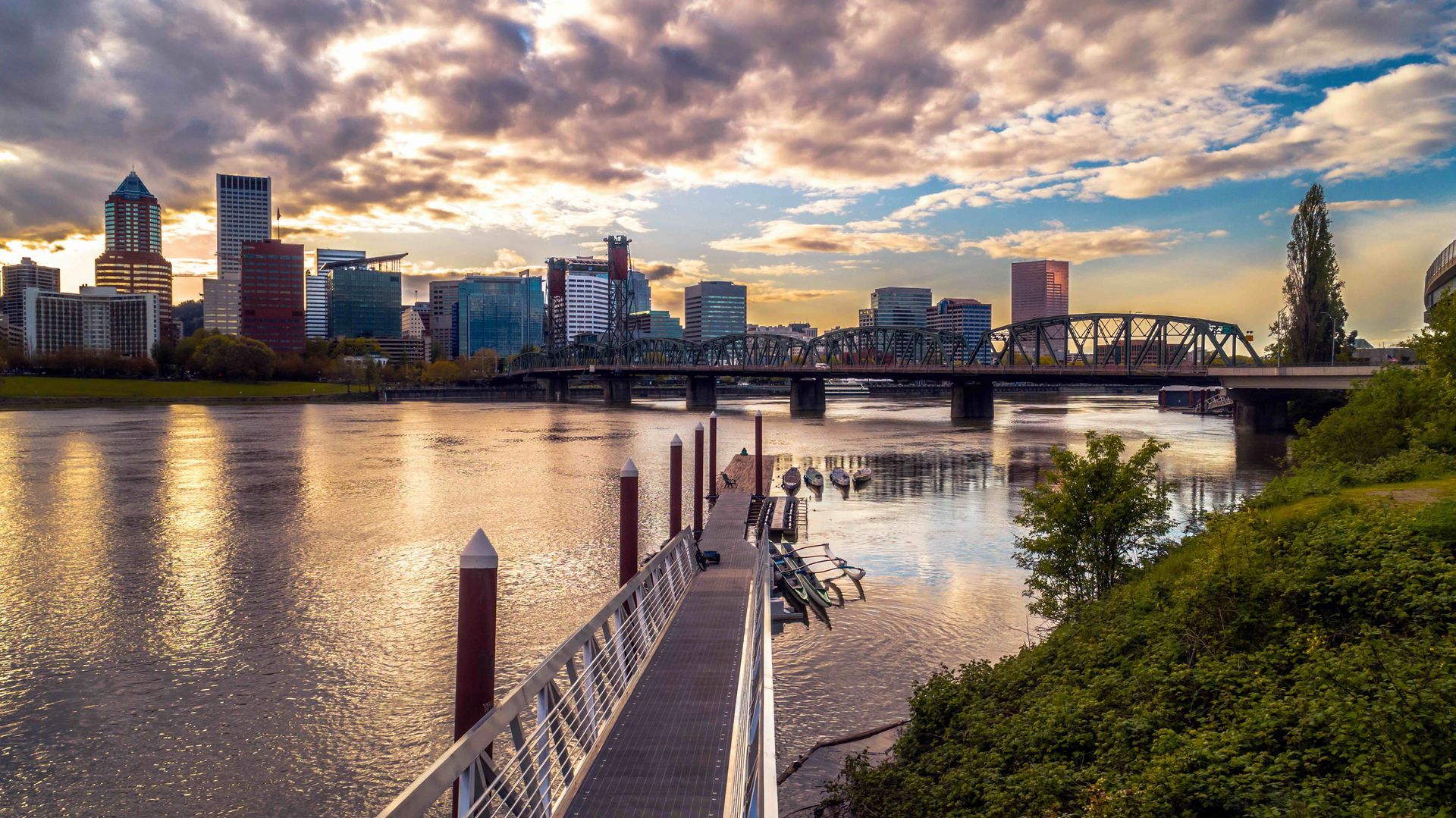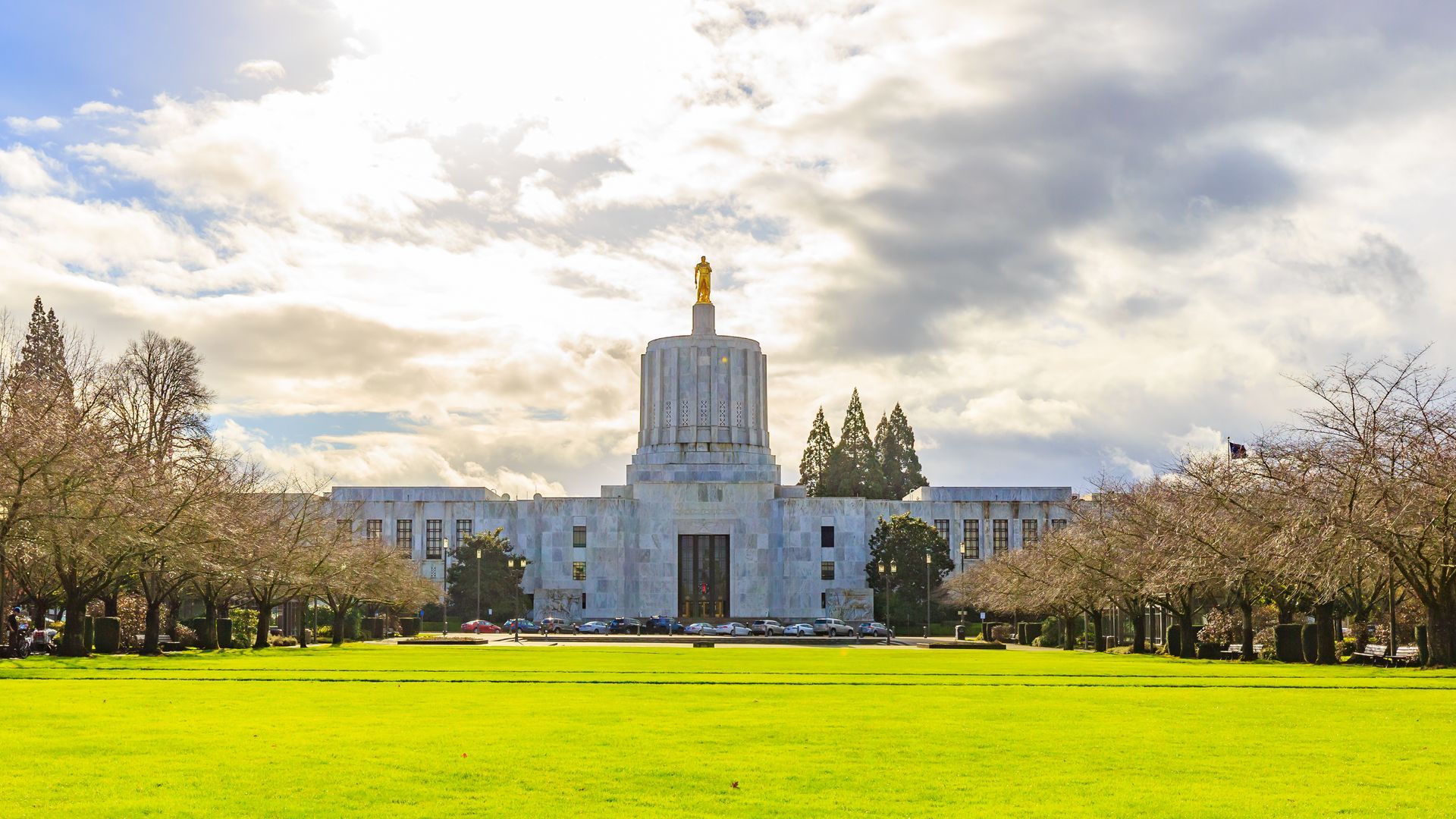Experienced Advocacy, Practical Solutions
Welcome to the Law Office of Frank Hammond, your trusted partner for environmental law matters in Portland
Portland, Oregon Environmental Attorney
Frank Hammond
Attorney at Law
Frank Hammond graduated 4th in his class from Cornell Law School. Throughout his illustrious career, Frank has successfully represented numerous clients, including corporations, government entities, and non-profit organizations. His impressive case results bear testament to his ability to deliver favorable outcomes even in the most challenging situations. His skillful negotiation tactics and persuasive courtroom presentations have earned him the respect of his peers and the gratitude of his clients.

Case Results
(Hazardous Waste and Administrative Litigation.) DEQ fined OWL alleging that it had illegally disposed of radioactive waste in Waste Management's hazardous waste landfill in Arlington, OR. DEQ sought a penalty of approximately $320,000. Through argument, I was able to get the fine reduced to approximately $22,000.
DEQ v. Oilfield Waste Logistics (OWL)
(Environmental and Administrative Litigation.) Currently lead attorney in defending WWM from DEQ regulatory overreach seeking to require coverage under NPDES General Permit 1200-Z where the facility at issue does not discharge industrial storm water.
DEQ v. Wood Waste Management
(Solid Waste.) I was lead attorney in a multimillion-dollar transaction for a stock sale of a large Oregon solid waste franchised hauler. The transaction included sale of a materials recovery facility and other property. The sale included the need to transfer several solid waste franchises and other licenses and permits.
Kahut Companies Transaction
At the Law Office of Frank Hammond, we assist clients across the Portland area with a wide range of environmental and regulatory matters, including land use disputes, water rights issues, permitting, and compliance with federal and state environmental laws. Our goal is to help businesses and individuals across the area manage legal risks and achieve their objectives efficiently.
What sets us apart is our ability to develop legal strategies that balance regulatory requirements with practical business solutions. We understand the complexities of environmental law and work to protect your interests while ensuring compliance with applicable regulations.
We serve clients throughout Clackamas County, Multnomah County, Washington County, Douglas County, Jackson County, and across the state of Oregon. Contact us today to learn how we can assist you.
Testimonials
"We enlisted Law Office of Frank Hammond to assist us with an extremely large transactional project. Frank and his team diligently reviewed tens of thousands of pages of documents in a relatively short amount of time. They went above and beyond to get our project completed by a crucial deadline. We could not have completed this project without their dedication and quick responsiveness."
-Ray Kahut - former COO Kahut Waste Services
"Frank did a great job representing Owl, Inc. an out of state energy waste management company. Frank's relationships with the regulatory agencies and private parties involved was a great asset. He successfully negotiated on our behalf with several different entities. I highly recommend Frank Hammond for all your environmental legal needs."
-President and CEO of Oilfield Waste Logistics
"We started working with Frank Hammond in 2006 when we needed some help with our closed landfill DEQ permit. Since then, we have used Frank for a lot of our solid waste related needs. He has been a resource for Oregon Refuse and Recycling Association’s conferences. Frank has shown himself to be incredibly resourceful, knowledgeable, and thorough in his work.
I highly recommend him!"
-Lon French, President of Lincoln Sanitary Co
"Law Offices of Frank Hammond have helped our family business for almost two decades. Frank has a mastery of our complex industry and uses common sense and solid legal analysis to guide us to the best possible big picture outcome. I am thankful to have him as a member of our legal team."
-Rob Thompon, President of Thompon's Sanitary Service
"We enlisted Law Office of Frank Hammond to assist us with an extremely large transactional project. Frank and his team diligently reviewed tens of thousands of pages of documents in a relatively short amount of time. They went above and beyond to get our project completed by a crucial deadline. We could not have completed this project without their dedication and quick responsiveness."
-Ray Kahut - former COO Kahut Waste Services
"Frank did a great job representing Owl, Inc. an out of state energy waste management company. Frank's relationships with the regulatory agencies and private parties involved was a great asset. He successfully negotiated on our behalf with several different entities. I highly recommend Frank Hammond for all your environmental legal needs."
-President and CEO of Oilfield Waste Logistics
Legal Guidance to Help You Move Forward
Whether you're expanding your business or addressing regulatory challenges, our environmental lawyer is here to provide effective legal counsel.
With nearly four decades of experience, our environmental lawyer is well-versed in legal matters related to land use, permitting, compliance, solid and hazardous waste, and more. We offer clear, strategic guidance to help you navigate regulatory complexities and resolve disputes effectively.
Our attorney is proud to be a member of the:
- Oregon State Bar
- Bar of the U.S. District Court for the District of Oregon
- Bar of the Ninth Circuit Court of Appeals
- Bar of the United States Supreme Court
Our focus is on delivering practical legal solutions that align with your long-term goals. Contact us today to discuss your legal needs with our environmental lawyer.




